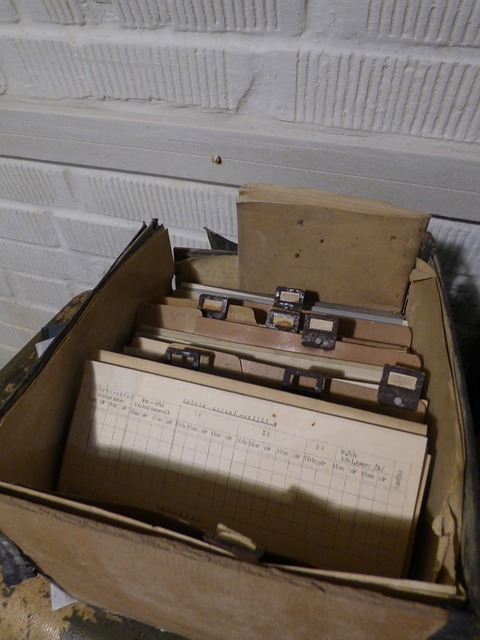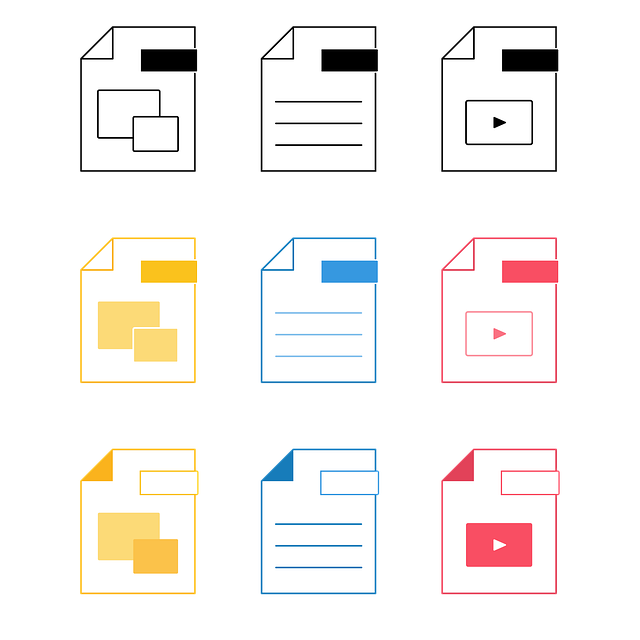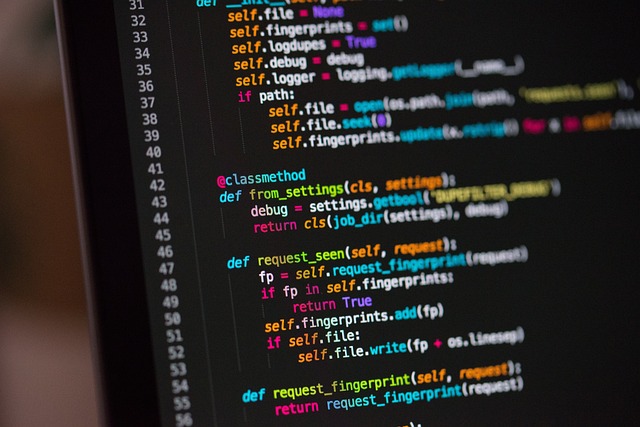Translation services for UK Research and Development (R&D) documents are crucial due to the intricate language and technical terminology often used. These specialized translation services ensure that scientific and technical content is accurately conveyed across different languages while maintaining compliance with international regulations. Proficient translators, who are typically native speakers well-versed in both the source and target languages as well as the specific field of research, provide precise translations that capture nuances, idiomatic expressions, and cultural sensitivities. This level of expertise is essential for UK R&D teams collaborating globally, as it allows for the clear communication of findings and fosters international innovation without language barriers. As evidenced by successful case studies, such services enable organizations to expand their market reach and facilitate global collaboration, ultimately enhancing the impact and dissemination of UK R&D work on a worldwide scale.
navigating the intricacies of research and development (R&D) translation requires a blend of linguistic precision and subject-matter expertise. This article delves into the critical role of professional translation services in enhancing UK R&D projects, providing a comprehensive guide to the process. From understanding the importance of precise translation in R&D contexts to exploring the UK’s research landscape and the types of translations needed, we cover essential considerations for selecting translation providers and best practices for translating scientific and technical documents. Additionally, we address ensuring accuracy and compliance in translated materials and the significance of cultural nuances for global R&D teams. With case studies highlighting successful translation projects within UK R&D, this article serves as an indispensable resource for those seeking reliable translation services for their research documents.
- Understanding the Need for Precise Translation in R&D Contexts
- Overview of UK Research and Development Landscape
- The Role of Professional Translation Services in R&D Projects
- Key Considerations When Selecting Translation Providers for R&D Documents
- Types of Translations Required for UK R&D: A Comprehensive List
- Best Practices for Translating Scientific and Technical Documents
- Ensuring Accuracy and Compliance in Translated R&D Materials
- The Importance of Cultural Nuances in Translation for Global R&D Teams
- Case Studies: Successful Translation Projects in UK Research and Development
Understanding the Need for Precise Translation in R&D Contexts

When embarking on research and development (R&D) endeavors, the precision of translation services becomes a critical component for success. The UK’s R&D landscape is characterized by its diversity and complexity, with multidisciplinary projects often requiring collaboration across various scientific and technical domains. Accurate translations of UK R&D documents are indispensable, as they ensure that all parties involved—regardless of their linguistic background—can fully comprehend the nuances of experimental data, methodological frameworks, and theoretical underpinnings. The integrity of research findings hinges on clear communication; thus, it is imperative to engage with translation services that specialize in the intricacies of scientific language and the specific jargon used within UK R&D sectors. This not only facilitates the seamless exchange of information but also supports the adherence to regulatory standards and the protection of intellectual property, making translation services for UK research documents an indispensable tool for any R&D project that aspires to international collaboration and global impact.
Overview of UK Research and Development Landscape

The United Kingdom boasts a robust Research and Development (R&D) landscape, encompassing a diverse array of scientific endeavours that span various sectors including healthcare, engineering, and technology. This vibrant ecosystem is home to world-class universities, research institutions, and innovative companies. The UK government has consistently shown its commitment to R&D through substantial investments and policy frameworks that support both domestic and international research collaborations. Within this dynamic environment, the need for precise and accurate translation services for UK R&D documents arises, as researchers often engage in multinational projects requiring clear communication across language barriers. Translation services for UK R&D documents play a pivotal role in facilitating the exchange of knowledge and ensuring that scientific findings are accessible to a global audience. These specialized translation services must possess a deep understanding of technical terminology, research methodologies, and regulatory requirements, ensuring that all nuances of the original content are preserved in translations. This is crucial for maintaining the integrity of research outcomes and fostering international cooperation, thereby positioning the UK as a hub for cutting-edge innovation.
The Role of Professional Translation Services in R&D Projects

UK research and development (R&D) projects often require precise communication across different linguistic barriers to achieve success. In this context, professional translation services play a pivotal role in ensuring that R&D documents are accurately translated. These services are equipped with experts who not only understand the technical language inherent in R&D documentation but also possess specialized knowledge in various fields of science and technology. The nuances of scientific terminology, coupled with cultural context, are critical to maintain the integrity of research findings when translated into different languages. This is where professional translation services for UK R&D documents excel, offering meticulous translations that uphold the original content’s intent and clarity. Furthermore, these services adhere to strict confidentiality protocols, ensuring that sensitive data remains secure throughout the translation process. By leveraging the expertise of professional translators who specialize in scientific and technical fields, UK R&D projects can effectively bridge language gaps, facilitating collaboration and information sharing on a global scale. This not only accelerates the innovation cycle but also enhances the potential impact of research outcomes across diverse populations and markets.
Key Considerations When Selecting Translation Providers for R&D Documents

When embarking on a research and development project within the UK, the accuracy and clarity of translated documents are paramount. Selecting a translation service that specialises in R&D documentation ensures that scientific terminology is conveyed precisely, adhering to both linguistic nuances and technical contexts. It’s crucial to choose providers who possess subject-matter expertise within your field; this guarantees that the translated documents reflect the original content’s intent and complexity. Additionally, consider a translation service’s proficiency in handling sensitive data, as R&D projects often involve proprietary information. Opt for providers with robust security protocols and certifications, such as ISO standards, to safeguard your intellectual property throughout the translation process. Furthermore, evaluate their capacity for timely delivery without compromising on quality, especially when tight deadlines are a part of the research lifecycle. By meticulously vetting translation services for UK Research and Development Documents, you’ll mitigate potential misunderstandings and ensure that your project’s findings are accurately communicated to an international audience.
Types of Translations Required for UK R&D: A Comprehensive List

UK research and development initiatives often necessitate a variety of translations to ensure clear communication across international borders. Translation services for UK R&D documents are indispensable in this context, as they facilitate the exchange of information between researchers, stakeholders, and regulatory bodies worldwide. The types of translations required encompass a broad spectrum of document formats, from technical specifications and clinical trial reports to grant applications and research findings. Researchers must engage with multilingual experts who specialize in scientific terminology to accurately convey the nuances of their work. This is particularly critical when translating UK R&D documents into languages commonly used in international collaborations, such as Spanish, French, German, Chinese, and Japanese. Moreover, the translation services must adhere to industry-specific standards, ensuring that all regulatory requirements are met without compromising the integrity of the research data. By leveraging professional translation services for UK R&D documents, organizations can overcome language barriers, expand their global reach, and enhance the impact of their research endeavors.
Best Practices for Translating Scientific and Technical Documents

For precise and reliable translations of UK research and development documents, adhering to best practices is paramount. High-quality translation services for UK R&D documents are not merely about converting text from one language to another; they involve a nuanced understanding of both the source and target languages, as well as the specialized content within the documents. Translators should be adept in the scientific and technical lexicon relevant to the field of study, ensuring that the translated material maintains its original meaning and integrity. Employing native speakers with expertise in the subject matter is a cornerstone of this process, as they can accurately convey complex concepts and terminology. Additionally, utilizing translation memory software can enhance consistency across documents and streamline the translation workflow, especially when dealing with recurring terms or phrases. This approach not only facilitates clarity but also promotes efficiency in the translation process, making these services indispensable for UK research projects aiming for global impact.
Furthermore, collaboration between multilingual subject matter experts and professional translators is essential. This partnership ensures that all nuances of the original content are preserved in the translation, which is particularly critical when dealing with scientific and technical documents. These documents often contain sensitive information that requires a high level of accuracy and discretion. Translation services for UK R&D documents should also include thorough proofreading by experts who can validate the accuracy of both content and formatting. By adhering to these best practices, translation services can effectively bridge language barriers, enabling UK research projects to communicate their findings and collaborate with an international audience with confidence.
Ensuring Accuracy and Compliance in Translated R&D Materials

When embarking on a research and development project within the UK, the precision and compliance of translated documents are paramount. Accurate translations are not merely about converting text from one language to another; they encompass capturing the nuances, technical terms, and contexts specific to the R&D field. To achieve this, it is imperative to engage with professional translation services that specialize in UK research and development documents. These experts bring a deep understanding of industry-specific lexicon and regulations, ensuring that all translated materials reflect the original content’s intent and technical accuracy. They are adept at navigating the complexities of language barriers while adhering to the stringent compliance requirements often associated with R&D projects. By leveraging these specialized translation services, researchers can confidently communicate their findings, collaborate with international partners, and comply with regulatory standards without compromising on quality or clarity. This meticulous approach to translation is crucial for the successful dissemination and application of research outcomes on a global scale.
The Importance of Cultural Nuances in Translation for Global R&D Teams

When global R&D teams collaborate, the precision and cultural sensitivity in translation are paramount to ensure that UK research documents convey their intended meaning accurately across diverse linguistic and cultural contexts. Translation services for UK Research and Development Documents must go beyond mere word-for-word conversion; they must capture the nuances inherent in the original content. This is crucial as idiomatic expressions, technical jargon, and even the subtleties of tone can be lost or misinterpreted without a deep understanding of both the source and target languages and cultures. A well-executed translation serves as a bridge between researchers, facilitating clear communication and fostering innovation. It allows for seamless sharing of knowledge and research findings, which is essential in an interconnected world where scientific advancements can have global impact. By leveraging professional translation services for UK Research and Development Documents, teams can navigate cross-cultural challenges with confidence, ensuring that their collaborative efforts are not undermined by language barriers but rather elevated by a shared understanding.
Case Studies: Successful Translation Projects in UK Research and Development

UK research and development (R&D) documents often contain complex terminology and intricate details that require precise translation to accurately convey the intended meaning across different languages. Successful translation projects within the UK R&D sector are a testament to the high-quality translation services available. For instance, a pharmaceutical company embarked on a multilingual labeling project for a new drug, ensuring compliance with international regulations. The translation service provider not only delivered accurate translations but also adapted the content to meet the cultural nuances of each target market, demonstrating an understanding of both the linguistic and regulatory landscapes. Similarly, a tech startup undertook the translation of their proprietary software interface into several languages, facilitating global accessibility and usability without compromising on functionality or clarity. This initiative expanded their market reach and supported cross-border collaboration. Both cases underscore the importance of meticulous translation services for UK R&D documents, which are instrumental in advancing scientific knowledge and fostering innovation on a global scale. These examples highlight the expertise required by translation service providers to accurately interpret and convey complex technical information, ensuring that UK R&D efforts are effectively communicated worldwide.
In concluding, the meticulous translation of UK research and development documents is a critical component that facilitates global collaboration and the advancement of scientific knowledge. The intricate interplay between linguistic precision and cultural sensitivity in these translations ensures that R&D endeavors transcend language barriers without compromising integrity or meaning. By leveraging specialized translation services for UK research and development documents, organizations can navigate the complexities of multilingual projects with confidence, fostering innovation and dissemination of findings on a global scale. The comprehensive guidelines and best practices outlined in this article serve as a roadmap for researchers and practitioners alike to select and utilize translation services effectively, guaranteeing that their R&D materials are both accurate and compliant across diverse linguistic and cultural contexts.
